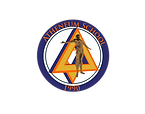Wikang Filipino: Our Language, From Then Until Now
- Alvin Germono

- Aug 7, 2024
- 2 min read
Updated: Nov 17, 2024

The annual celebration of Buwan ng Wikang Pambansa, or National Language Month, is crucial to recognize and preserve the significance of the language: Filipino. But how did this month-long celebration come to be? To understand its origins, we must journey back to the early decades of the 20th century.
The seeds of a national language movement were sown during the Commonwealth era under President Manuel L. Quezon. Recognizing the need for a unifying language, Quezon established a committee to study Philippine languages and select one as the basis for a national language. Tagalog, due to its widespread use and rich literary tradition, was eventually chosen.
In 1946, President Sergio Osmeña formally declared the first Linggo ng Wika (Language Week) to be celebrated from March 27 to April 2. This coincided with the birthday of the renowned Tagalog poet, Francisco Balagtas. However, the celebration's dates were adjusted several times over the years.
President Ramon Magsaysay, recognizing the inconvenience of celebrating Language Week during the summer break, moved the celebration to August 13 to 19 in 1955. This new schedule aligned with the birth anniversary of President Quezon, aptly called the "Father of the National Language."
The final step of Buwan ng Wika came in 1997 when President Fidel V. Ramos extended the celebration to an entire month.
Today, Buwan ng Wika is more than just a celebration of language; it is a celebration of Filipino identity and culture. Through various activities, contests, and programs, Filipinos are encouraged to embrace their linguistic heritage and appreciate the diversity of languages spoken in the archipelago.
The theme for this year's Buwan ng Wika is "Filipino: Wikang Mapagpalaya," because of its power to incite action, thus achieving freedom from the colonizers. Our language, Filipino, is the reason why we now have rights, dignity, and equality. Filipino is an instrument that achieved justice, education, and development amongst its people. It is proof of the nation's resilience and unifying force that shape our identity. As Filipinos, it is our duty to preserve and enrich our language.
This journey to the past mirrors the evolution of our nation, from a colonized archipelago to a sovereign republic. As long as life endures, may we use it as a tool for unity, empowerment, and nation-building. By doing so, we honor the legacy of our forebears and ensure the flame of our heritage burns brightly for generations to come. Mabuhay ang Wikang Filipino!





Comments